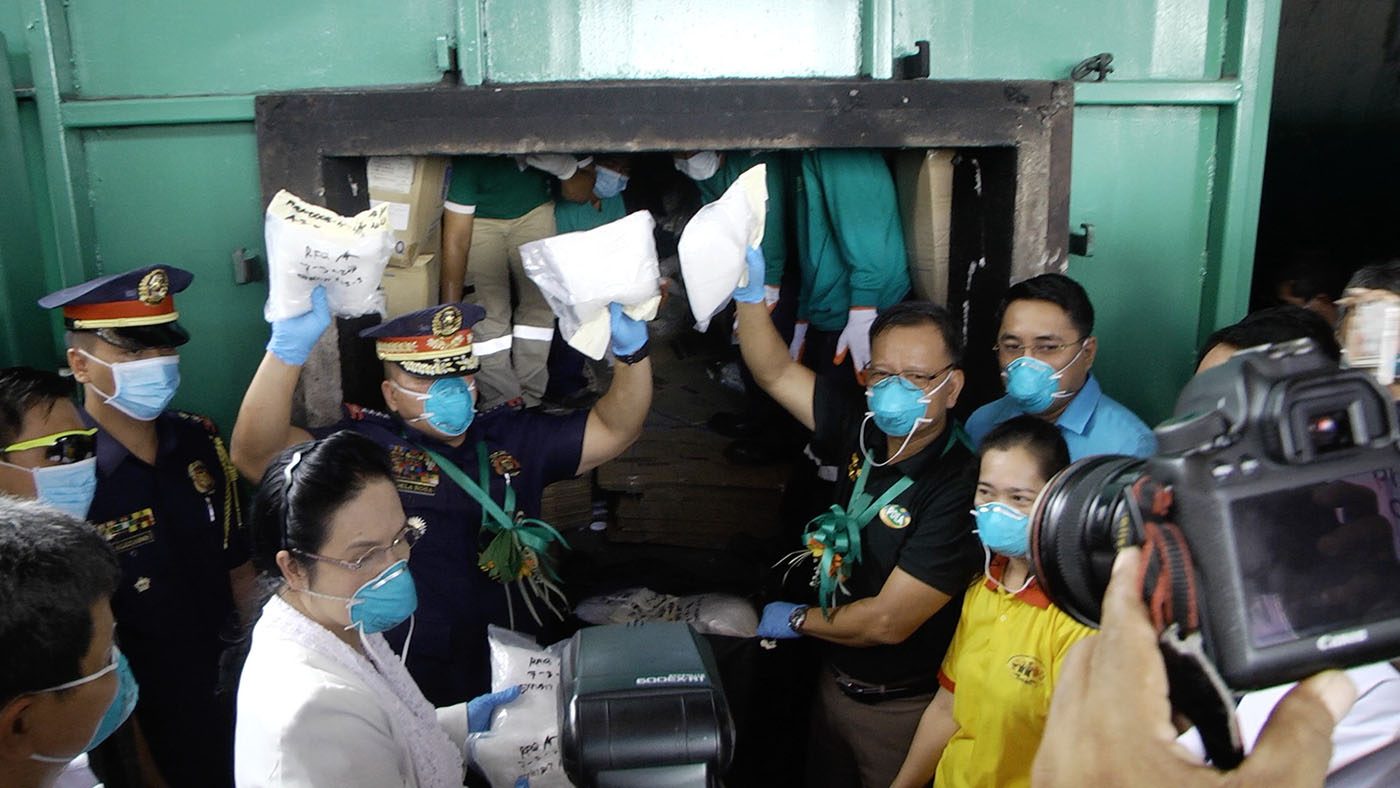SUMMARY
This is AI generated summarization, which may have errors. For context, always refer to the full article.

CAVITE, Philippines – The Philippine Drug Enforcement Agency (PDEA) on Thursday, July 14, destroyed close to P2 billion in illegal drugs, the second batch to be burned this year and the first under the administration of President Rodrigo Duterte.
Included among the destroyed substances were close to a billion pesos worth of methamphetamine (shabu) seized during a recent police operation in Claveria, Cagayan. It’s a first for the anti-drugs bureau – being able to destroy seized drugs within 10 days of an operation, but PDEA chief Isidro Lapeña wants an even shorter turnover rate.
“We are making arrangements that kung pwedeng representative, part of the evidence na lang ang maiiwan (only a representative, part of the evidence will remain) and the rest will be destroyed. But that will need a court order,” explained Lapeña during a press conference.
Why the need to speed things up?
Officials want a slimmer window of opportunity of wayward law enforcers to “recycle” seized drugs and return them back to the market. The “recycling” of drugs has been a perennial problem in the police force and in other law enforcement agencies.
Philippine National Police (PNP) chief Director General Ronald dela Rosa recently relieved several operatives of Quezon City’s anti-drug unit for suspected involvement in a syndicate that routinely “recycles” drugs seized during operations.
The modus is simple: instead of accurately reporting the amount of seized illegal substances, law enforcers only report part of the haul and keep some to themselves for reselling.
“Pag nangyari pa yan ngayon eh mananagot talaga sila sa akin. Siguraduhin natin na mananagot sila pag ginawa nila iyon. Never. Zero, zero tolerance tayo pagdating sa ganoong bagay,” said Dela Rosa, PDEA’s guest of honor during the event.
(If recycling still happens, they’ll answer to me. We will make sure that they pay for what they did. Never. I have zero tolerance for that sort of activity.)
Cottage industry
In police parlance, they’re called “ninjas,” a loose group of cops that have made a cottage industry from the recycling and reselling of drugs they themselves have seized.
Alongside nationwide operations targeting drug dealers, the PNP and PDEA have intensified efforts to purge the agency of erring personnel, said Lapeña. An agent in Calabarzon, for instance, has been relieved and is being investigated for involvement in illegal drugs.
Tens of thousands have surrendered as part of the PNP’s “Oplan Tukhang,” where cops literally knock on the doors of suspected drug users and pushers to urge them to end their ways. “Tukhang” started in Davao when Dela Rosa was its police chief and is a mix of the Bisaya words “tuktok (to knock)” and “hangyo (to ask).”
But hundreds have also died on the streets from both police operations and alleged vigilante killings.
The PNP has been accused of committing extrajudicial killings in its war on drugs. But Dela Rosa has repeatedly defended his men and women, saying he “presumes regularity” in their operations.
On Thursday, the PNP chief said it’s drug syndicates who are “killing each other.” – Rappler.com
Add a comment
How does this make you feel?
There are no comments yet. Add your comment to start the conversation.